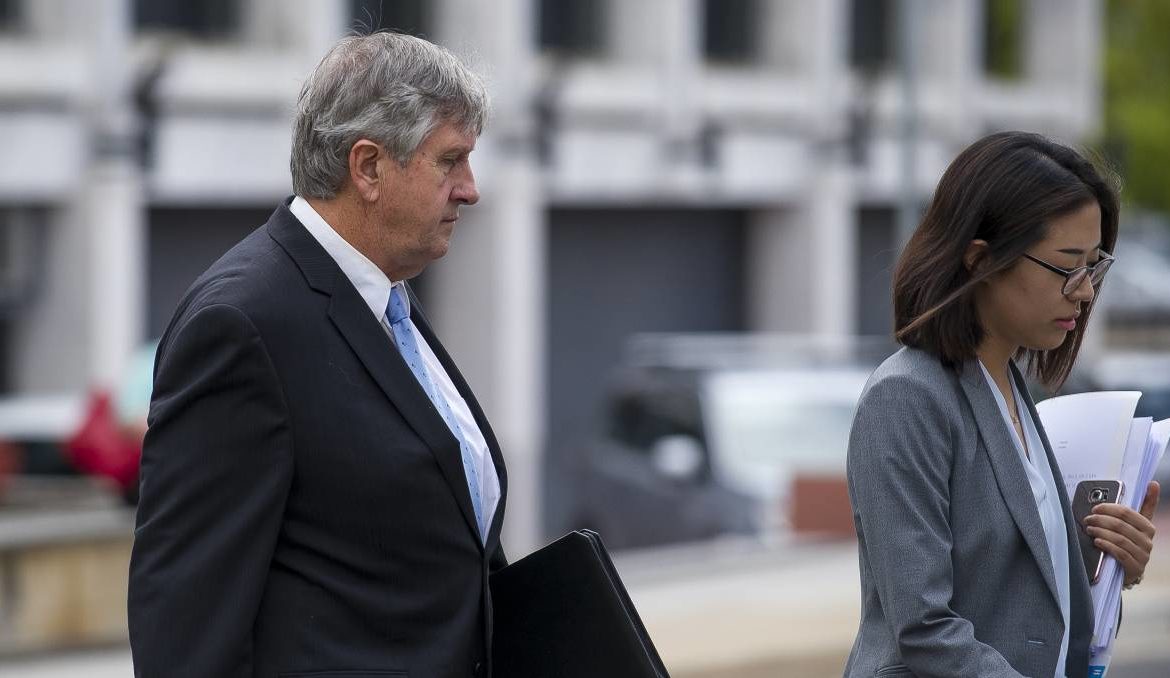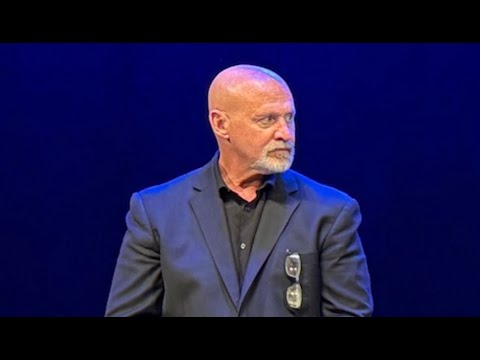news, crime,
A former University of Canberra lecturer who served time in jail for raping and committing acts of indecency on his students has been banned from practising law in an “almost inevitable” decision. Arthur Marshall Hoyle, 70, was sentenced in 2017 to a minimum of two-and-a-half years behind bars for eight sex crimes perpetrated against four business law students who were all in Australia on temporary visas. Hoyle committed each of the offences in his office in April 2015, when he made unwanted advances on each of the women and suggested he could make allegations of plagiarism go away in exchange for sexual favours. He continues to deny the offending, which included two rapes, but the guilty verdicts returned by the jury at his trial were also upheld by the ACT Court of Appeal. The incidents were discussed again in the ACT Supreme Court on Friday, when the Council of the ACT Law Society applied to have Hoyle removed from the roll of legal practitioners. Barrister Daniel Moujalli, representing the council, told a full bench of the court that a lawyer being convicted of a criminal offence did not necessarily demonstrate “permanent unfitness” to practise. But in this case, Mr Moujalli said, the only appropriate outcome would be having the 70-year-old’s name forever scrubbed from the roll. “The crimes here are at the higher end of criminality,” he said. In making his argument, Mr Moujalli pointed to the fact that Hoyle’s offending had not involved an isolated incident, but crimes committed on four separate days during a 10-day period. The barrister said Hoyle clearly did not possess many of the qualities necessary to practise law, including trustworthiness, given he had abused a position of trust as a lecturer to take advantage of students “who were in a particularly vulnerable position”. Hoyle had also obviously given false evidence in court given the outcome of his trial and subsequent appeal, Mr Moujalli stated, while his continued claims of innocence were also proof he was unfit to work in the law again. “There has been no evidence of rehabilitation, reformation of character or insight into wrongdoing,” Mr Moujalli said. While Mr Moujalli did not raise this point in his oral submissions, Hoyle has also previously complained about having to complete a sex offender’s program in jail. Hoyle is now on parole but did not attend Friday’s hearing, having emailed the court in advance to say he was not contesting the Law Society’s application. After hearing Mr Moujalli’s submissions, the Supreme Court panel of Chief Justice Helen Murrell, Justice John Burns and Justice Michael Elkaim took less than two hours to order Hoyle’s removal from the roll. The judges said it would be impossible for the public and fellow practitioners to expect honesty and “honourable conduct” from someone who had behaved the way Hoyle had. “The continuing denial of the offences and lying in the witness box [at trial] re-enforces this conclusion,” they said. “[Hoyle] did have a long and distinguished career as an academic, but the credit he receives for this history is overwhelmed by the offences and the attendant dishonesty. “This court, almost inevitably, has reached the conclusion that the defendant is not a fit and proper person to remain on the roll.” The judges also directed that Hoyle pay the Law Society’s costs for the proceedings, but granted him leave to appeal against that order within two weeks if he so desired.
/images/transform/v1/crop/frm/fdcx/doc6u5w8pe3qbpggdyf9of.jpg/r7_192_3582_2212_w1200_h678_fmax.jpg
A former University of Canberra lecturer who served time in jail for raping and committing acts of indecency on his students has been banned from practising law in an “almost inevitable” decision.
Hoyle committed each of the offences in his office in April 2015, when he made unwanted advances on each of the women and suggested he could make allegations of plagiarism go away in exchange for sexual favours.
The incidents were discussed again in the ACT Supreme Court on Friday, when the Council of the ACT Law Society applied to have Hoyle removed from the roll of legal practitioners.
Barrister Daniel Moujalli, representing the council, told a full bench of the court that a lawyer being convicted of a criminal offence did not necessarily demonstrate “permanent unfitness” to practise.
But in this case, Mr Moujalli said, the only appropriate outcome would be having the 70-year-old’s name forever scrubbed from the roll.
“The crimes here are at the higher end of criminality,” he said.
In making his argument, Mr Moujalli pointed to the fact that Hoyle’s offending had not involved an isolated incident, but crimes committed on four separate days during a 10-day period.
The barrister said Hoyle clearly did not possess many of the qualities necessary to practise law, including trustworthiness, given he had abused a position of trust as a lecturer to take advantage of students “who were in a particularly vulnerable position”.
Hoyle had also obviously given false evidence in court given the outcome of his trial and subsequent appeal, Mr Moujalli stated, while his continued claims of innocence were also proof he was unfit to work in the law again.
“There has been no evidence of rehabilitation, reformation of character or insight into wrongdoing,” Mr Moujalli said.
Hoyle is now on parole but did not attend Friday’s hearing, having emailed the court in advance to say he was not contesting the Law Society’s application.
After hearing Mr Moujalli’s submissions, the Supreme Court panel of Chief Justice Helen Murrell, Justice John Burns and Justice Michael Elkaim took less than two hours to order Hoyle’s removal from the roll.
The judges said it would be impossible for the public and fellow practitioners to expect honesty and “honourable conduct” from someone who had behaved the way Hoyle had.
“The continuing denial of the offences and lying in the witness box [at trial] re-enforces this conclusion,” they said.
“[Hoyle] did have a long and distinguished career as an academic, but the credit he receives for this history is overwhelmed by the offences and the attendant dishonesty.
“This court, almost inevitably, has reached the conclusion that the defendant is not a fit and proper person to remain on the roll.”
The judges also directed that Hoyle pay the Law Society’s costs for the proceedings, but granted him leave to appeal against that order within two weeks if he so desired.







